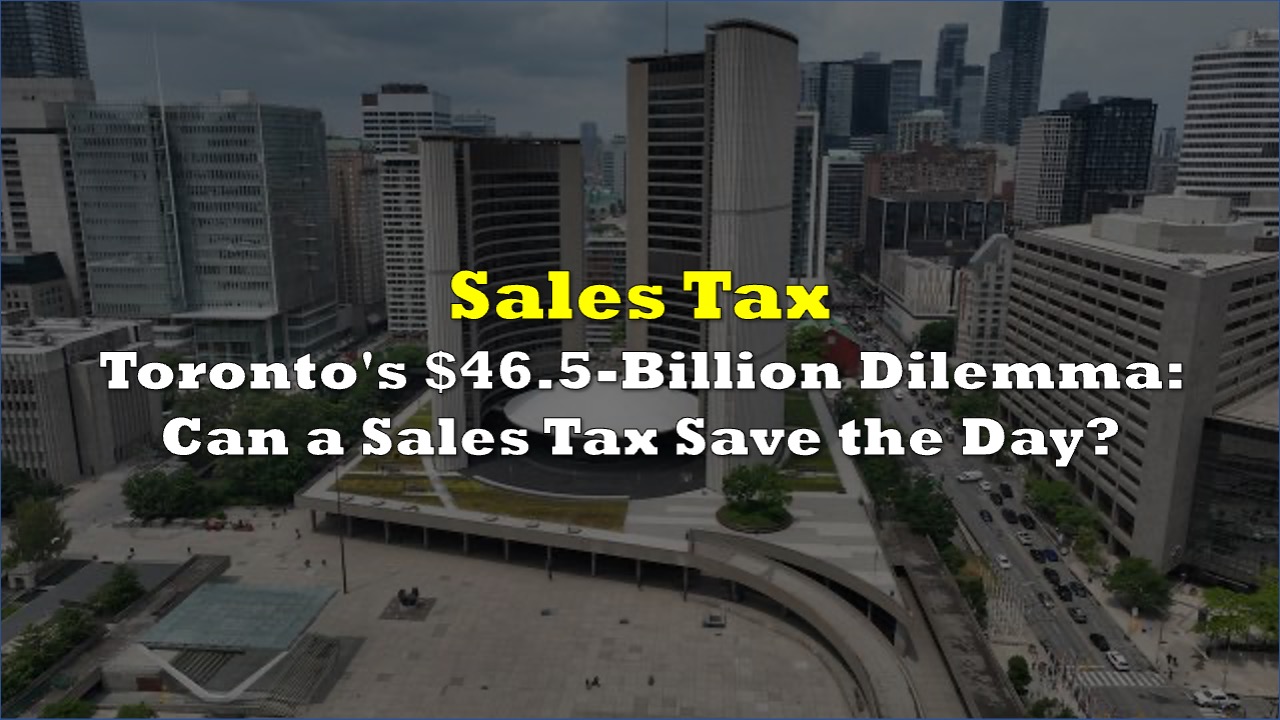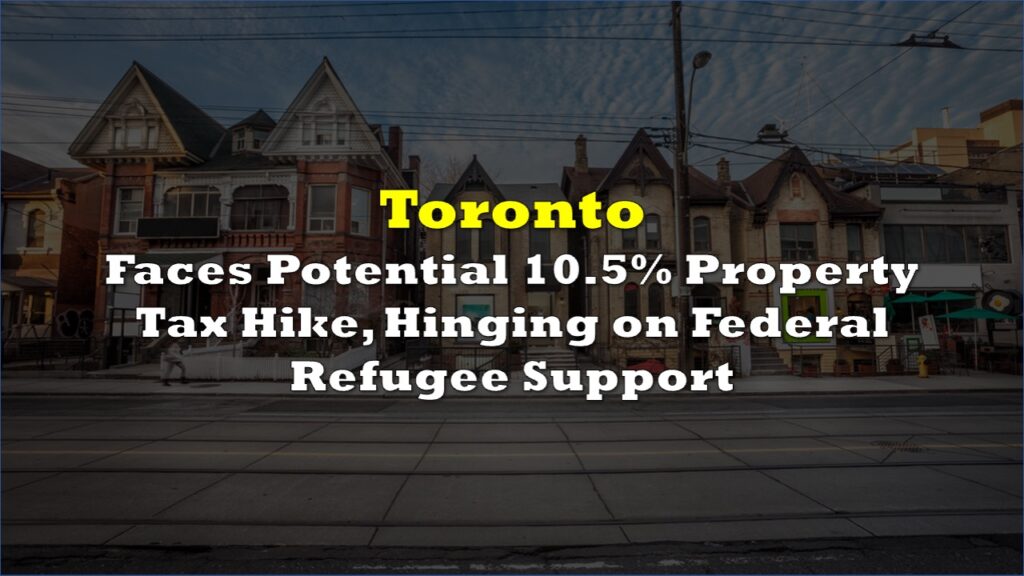Toronto City Hall is exploring the possibility of implementing a local sales tax as a potential solution to its significant fiscal challenges.
While municipal sales taxes are common in many foreign cities, they are unprecedented in Canada. A successful implementation in Toronto could set a precedent for other cash-strapped Canadian municipalities. However, there are hurdles to overcome, with the Ontario government’s approval being a crucial requirement.
The provincial government’s stance on the proposed sales tax remains uncertain, but Premier Doug Ford has long emphasized the need for cost-cutting in Toronto rather than seeking additional revenue sources.
Toronto city staff recently highlighted the sales tax option in their assessment of the city’s long-term financial outlook, which reveals a daunting $46.5-billion funding gap over the next decade. The Toronto City Council is set to deliberate on this matter during its upcoming meeting.
Toronto’s budget shortfall is emblematic of a broader issue faced by municipalities across Canada, where financial responsibilities are growing while revenue streams remain stagnant. Currently, no Canadian city has its own sales tax. Some municipalities in Quebec receive a portion of provincial sales tax revenue, and Vancouver City Council has recently expressed interest in a similar arrangement.
The Federation of Canadian Municipalities passed a resolution in May calling for an evaluation of “new direct taxation powers” for cities, recognizing the need for a revamped municipal funding framework.
In Toronto, experts estimate that a sales tax could generate approximately $800 million annually, making it one of the more substantial revenue options on the table. City Manager Paul Johnson has indicated that a sales tax is the more immediate preference, though an income tax is also under consideration.
One question is whether the sales tax should be specific to Toronto or if the city should receive a portion of provincial tax revenue.
Budget Chief Shelley Carroll underscores the city’s predicament by highlighting how major events, such as concerts — Taylor Swift’s in particular, do not significantly contribute to the city’s finances.
She argues that a sales tax could capture economic growth and bolster city reserve funds during prosperous times, providing a safety net for downturns. Critics, however, express concerns that new revenue may simply disappear into an already expanded operating budget.
Additionally, the city must contend with the potential for fluctuating revenue and the risk of discouraging shoppers from spending locally. Experts suggest that a geographically broad sales tax may be a more effective approach to mitigate these issues.
Information for this story was found via The Globe and Mail, and the sources and companies mentioned. The author has no securities or affiliations related to the organizations discussed. Not a recommendation to buy or sell. Always do additional research and consult a professional before purchasing a security. The author holds no licenses.










One Response
The concept of adding another “Tax” to an already overtaxed city, municipality or Province from a public perspective is quite untenable. The city in this case needs to cut costs or come up with some novel new way of generating revenue. The idea of initiating another “Tax” to solve its problem will lead to a COVID mentality spreading across this country to infect other cities with the same revenue issues.
We the public do not need another “Tax” to deal with. Life whether it be business or residential is already tough enough.